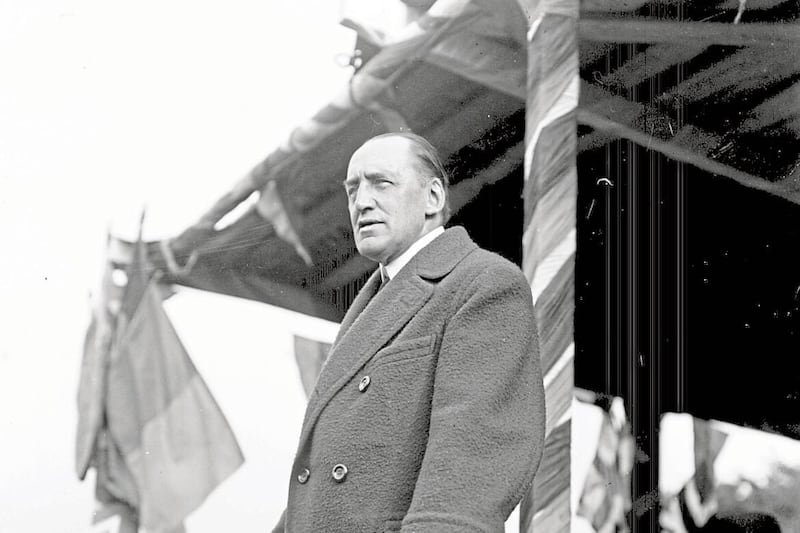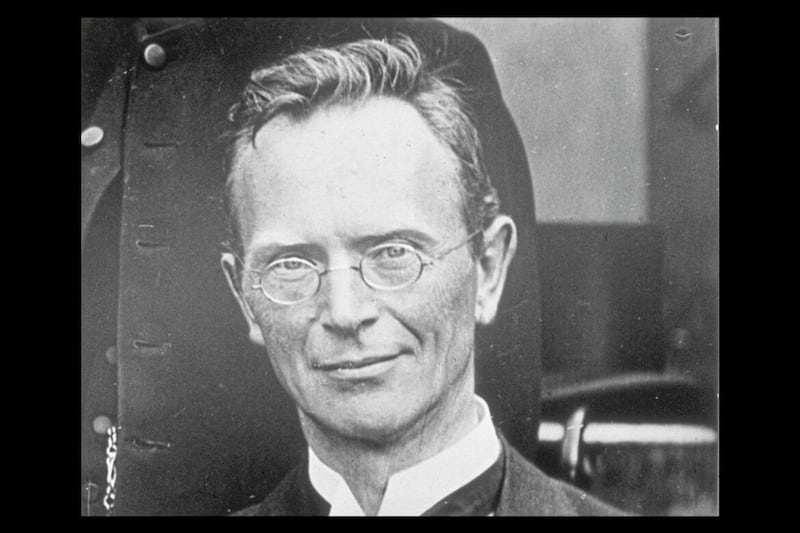KATE Hoey's recent comments, including the controversial view "that many professional vocations have become dominated by those of a nationalist persuasion", have attracted widespread criticism, particularly by those who welcome the fact that discrimination against nationalists in Northern Ireland is no longer open and prevalent.
The reality is that nationalists have finally reached a level of equality denied to them for decades.
Northern Ireland, since its establishment in 1921, as David Trimble conceded in his Nobel Peace Prize-accepting speech in 1998, was a "cold house for Catholics". It is only in very recent times that equality of opportunities for Catholics has prevailed in the north.
Given the way the entity of Northern Ireland was constructed to secure a permanent unionist and Protestant majority without any consultation with the one-third Catholic and nationalist minority, it was apparent from the off that the minority population would find it hard to obtain any levels of equality.
Even though the Government of Ireland Act 1920, which paved the way for the establishment of Northern Ireland, prohibited discrimination based on religious beliefs and Northern Ireland's first prime minister James Craig declared shortly after becoming leader of the Ulster Unionist Party in February 1921 that, "the rights of the minority must be sacred to the majority", the reality was markedly different where Catholics experienced widespread discrimination in all facets of northern life - in politics, in employment, in their treatment by the law, in housing and in education.
The role for Catholics in the northern civil service was uncertain from the start. At a cabinet meeting, the northern government committed to "enrol members of all creeds in their staff provided their loyalty was unquestioned".
However, when the British Treasury recommended the eminently qualified H.P. Boland for appointment to a senior post in the new Northern Ireland civil service as an official, Boland, a Catholic, was turned down.
The northern government responded: "Thank you very much, but no. I believe you know the reason why." This was a clear indication that very few Catholics would find a place in the new civil service.
While the first head of the northern civil service, Ernest Clark, attempted to steer the northern government away from discriminatory measures against the Catholic minority, often falling on deaf ears, he expected loyalty to the new jurisdiction and the crown.
In a northern context, this posed great obstacles for the Catholic minority to be reconciled to the new jurisdiction. Although Clark believed there should be no discrimination against Catholics, there is little evidence of Clark empathising or even understanding the wholesale opposition the Catholic minority had with the creation of Northern Ireland, an entity thrust upon them without consultation and one they feared would be marked by triumphalist Protestant rule.
The make-up of the cabinet of the first northern government was a significant factor in determining how Catholics and nationalists were dealt with.
All cabinet members were drawn from the upper layers of Protestant Ulster society and all had close links with the Orange Order. Many cabinet members showed a reluctance to treat Catholics equally, with some seeking the minimum number of Catholics, if any, in their departments.
After Home Affairs minister Richard Dawson Bates heard "with a great deal of surprise, that a Roman Catholic telephonist has been appointed", he refused to use the telephone for important business until he succeeded in getting the employee transferred.
His paranoia knew no bounds. He was in favour of banning all Catholics from being allowed to enter the northern civil service.
The northern government also looked to disenfranchise and limit political representation for Catholics and nationalists by suspending nationalist-controlled local authorities who refused to recognise the northern government, by abolishing proportional representation (PR), by compelling councillors to pledge an oath of allegiance to the crown, and by gerrymandering regions to reduce radically the number of local councils held by nationalists.
Michael Collins argued that the purpose of the bill to remove PR was "to oust the Catholic and Nationalist people of the Six Counties from their rightful share in local administration" and, "to paint the Counties of Tyrone and Fermanagh with a deep Orange tint".
The decision to abolish PR was taken solely in the interests of unionism while also serving to alienate the nationalist minority.
The removal of PR was followed by the rearrangement of local government boundaries. A one-man commission under Judge John Leech held inquiries in contested areas.
Unsurprisingly, the majority of these areas in question contained a Catholic and nationalist majority. With a few exceptions, nationalists refused to meet the commission, resulting in unionists dictating the positioning of boundaries with meticulous care to their own complete satisfaction.
Unionist control of local and national government was consolidated by direct and indirect economic discrimination in employment, both in the public and private sectors, and in the distribution of public-consumption benefits, especially in public housing.
Another stark example on how Catholics were mistreated when Northern Ireland was formed could be found in law and order. The draconian Special Powers Act, although introduced temporarily in 1922, remained law for decades, and resulted in the disproportionate punishment of Catholics who were far more likely to be imprisoned, interned, executed or flogged than those from the Protestant populace.
Many from the almost-exclusively Protestant ancillary police force, the Specials, were spared punishment by the northern authorities for indiscriminate sectarian attacks on Catholics. Although Catholics suffered the brunt of the sectarian violence that engulfed the north in waves from 1920 to 1922, they were far more likely to receive criminal convictions from the one-sided authorities.
While the new permanent police force established in 1922, the Royal Ulster Constabulary (RUC), stated its aim was to allocate one third of its membership to Catholics (keeping it line with the Catholic population of the north), in the end Catholics comprised one sixth of the numbers of the RUC.
No attempt was made to increase this proportion. By 1936, there were only 488 Catholics out of 2,849 in the RUC and only nine Catholics among the 55 officers holding the rank of district inspector and above. This had declined to about one in 10 by the late 1960s.
Despite the fact that the first Lord Chief Justice of Northern Ireland, Denis Henry, was a Catholic, he was that rare phenomenon, a Catholic Ulster Unionist MP, and overall, the history of the north's judiciary suggests appointments to its ranks were barely attainable for aspiring Catholics.
After Henry's death in 1925, no other Catholic was appointed to the highest court until 1949. As late as 1969, Catholics held a mere six out of 68 senior judicial appointments, and judges and barristers had to take archaic oaths of loyalty, a stumbling block for many Catholics.
However, the unequal and discriminatory foundation upon which Northern Ireland was built could never be sustainable on a permanent basis.
It is disheartening, though, that such an environment existed for so long.
::Cormac Moore is author of Birth of the Border: The Impact of Partition in Ireland (Merrion Press, 2019).








